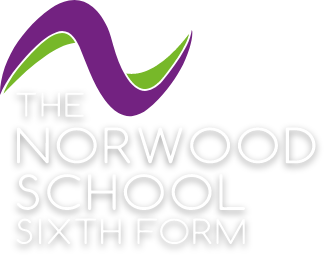Acting
Name of subject: Acting / Drama and Theatre Studies
Examination board: Edexcel
Qualification – (A-Level/BTEC): BTEC National Diploma (equivalent to x2 A-Levels)
Entry requirements: Successful completion of BTEC First Award to at least Merit level, or an audition if the subject is not being studied in KS4.
Description of the course (Overview):
What topics will students cover? – Year 12 &Year 13
The core of this course uses the vocational strengths of the Edexcel BTEC National Diploma in Performing Arts (Acting) to create Actor training that will prepare students for a career in the Performing Arts industry. There is an expectation that students will approach lessons as actors, which allows staff to be directors and practitioners of theatre. There is also the opportunity for students to take the Edexcel Drama and Theatre Studies course, and students who opt for this extension will be required to undertake some additional tasks, although the majority have been built into the overall programme of study.
Students will develop acting and performance skills through a mixture of skills and technique sessions and performance projects. Students will take part in a number of productions during this year, from workshop sharing, to full productions. Students have the opportunity to take advantage of the school’s new facilities that include a professional specification 250-seat theatre space, a new drama studio and rehearsal room.
In Year 12, students will undertake the following:
Acting Technique: An in-depth look at contemporary theatre, studying modern, cutting edge texts, and investigating the work of the theatre practitioner Stanislavski. This work will include work on character, vocal and movement techniques, textual analysis, and emotional investment. Students will be expected to keep an actor’s journal that keeps track of their development as an actor and records what they have undertaken in sessions and rehearsals.
Theatre Workshop: Workshop sessions will introduce students to the skills needed to produce effective Devised Theatre work. These will include a range of approaches and will use numerous stimuli to create original and new pieces of theatre, working on solo and group projects.
Performance Context: Looking at a number of styles and genres of theatre, including Commedia Del’Arte, Greek Theatre, Japanese Theatre, Theatre of the Absurd, and Restoration Drama. This will also look at the evaluation of professional theatre work that will be seen as part of the course.
In Year 13 students will continue to develop their acting techniques and will form a theatre company, which will put on two major productions. As well as acting roles within these productions students will also manage budgets, prepare marketing and take on off-stage roles in the company. Students will undertake Audition Technique in order to prepare them for Drama School and University auditions. They will work on monologue and scene work, from both contemporary and classical texts as part of this. They will also investigate the career opportunities within theatre and the performing arts.
What skills will they particularly develop?
You will learn how to work as part of a performance team - to lead and take the initiative in group work, to undertake independent learning and develop research skills. The work on this course will develop a greater all round confidence that will help you in all areas of life.
Careers – progression. Where does this programme of study lead e.g. examples of the types of careers that students can progress into?
BTEC qualifications are valued in Higher Education and by employers, and the natural progression from these Level 3 courses will be a continued study of Acting and Theatre, either at Drama School or University. The emphasis on practical Acting skills means that you have every opportunity to be fully prepared for Drama School and University auditions and you will be fully supported in making applications and the preparation of appropriate audition material.
If successful there are a wide variety of prospective careers that you can explore, for example: actor/actress, TV presenter, entertainer or radio performer.
Progression to other areas of theatre and the arts is also a possibility, and these can include: Directing, Scriptwriting, Arts Administration, Drama Teaching, Musical Theatre Performance, and Producing.
Depending on other courses that are being taken alongside this course, students could also consider working in Drama Therapy, Speech Therapy, Journalism, Advertising, marketing, English and History.
We have already had students progress on to Drama School and University to study both Acting and a range of other subjects, including History and English.
Enrichment activities
Identify the variety of places/exhibitions/museums/trips/workshops etc that students will participate in.
You will be given the opportunity to attend the theatre regularly to watch professional productions in a range of theatres in London, including the Young Vic, Royal Court, and National Theatre. There will also be a range of workshops from visiting theatres, companies, and practitioners.
